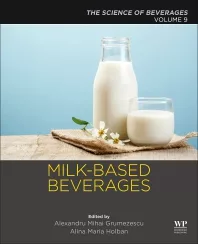Consumer shopping trips remain up, IRI data shows
Basket sizes for frozen foods, packaged foods and beverages up vs. 2019

Chicago-based Information Resourced Inc. (IRI) is continuing to collaborate with its partners at the Boston Consulting Group (BCG) to analyze the latest consumer purchase trends in Italy, France, Germany, Netherlands, New Zealand, Spain, United Kingdom and United States. The market research firm updated the report “Consumer Spending Tracker: COVID-19 Impact” to capture the most recent insights.
The most recent report sources sales data from the IRI POS Data ending April 19. For the United States, sales trends remain slightly elevated as total store sales are up 4.1 percent. Total non-edible sale are relatively flat (up 0.8 percent), while total edible sales are up 5.1 percent.
Among the main edible categories, beverages posted a -2.6 decline for the week ending April 19. Alcohol, however, continues to post double-digit gains with sales up 17.5 percent.
U.S. consumers also seem to be favoring traditional channels as grocery store sales have outpaced multi-outlet (MULO) growth since peak stockpiling. For the week ending April 19, grocery sales were up 12 percent while MULO sales were up 5 percent. Convenience store sales remain in decline (-2 percent); however, this is an improvement from its biggest decline of 10 percent that was reported for the week ending March 29.
IRI data also found that post the peak stock-up, consumers are making fewer trips to retailers, but are continuing to buy more for each trip. For the week ending April 19, the percent change of trips for a buyer versus a year ago was down 14 percent. By comparison, this number was up 39 percent, respectively, for both the week ending March 15 and 22. The percent change for the units purchased each trip versus a year ago has remained up since peak stockpiling (week ending March 15). For the week ending April 19, this data point was up 17 percent. By comparison, the measurement was up 14 percent of the week ending March 15.
When analyzing U.S. consumers’ basket sizes for edible categories, IRI data found that over the four week timeframe ending April 19, frozen foods, packaged foods and beverages had larger basket sizes compared with 2019.
Looking for a reprint of this article?
From high-res PDFs to custom plaques, order your copy today!








